Charting a path
You can’t be what you want to be unless you’ve got a plan.
STRATEGY | TRINITY TODAY 2024


Trinity College this year released a revised strategy, which will see the College through to 2030. The previous strategy, devised in 2017, focused primarily, but not exclusively, on bricks and mortar, business improvement and scholarships. The completion of many of the transformational projects from then has allowed the 2024 blueprint to place greater focus on people and culture.
‘Trinity is all about community and what the previous strategy has done has allowed us to have a much more efficient, effective college, which creates an atmosphere where people want to come, study, live and work,’ says Trinity College Warden and CEO Professor Ken Hinchcliff.
‘We’ve continued to create a beautiful campus, upgraded and added buildings, reviewed the culture in our Residential College, and ensured that the business operations of the College are contemporary and fit for our purpose. As a result, more than ever, people want to come and live here, they want to come and work here, and it creates a healthy community. That's the most important part of it.’
That said, the development and maintenance of Trinity’s facilities is never ending. ‘We plan to spend approximately $50 million over the next few years to ensure that our physical facilities are top notch and that we have a functionally modern college. This will enable us to fully implement the programs that come out of the new strategy,’ says Ken.
People and community lie at the heart of Trinity’s plans through to 2030. While our community has, of course, always been a core part of the fabric of the College, the new strategic plan brings added focus to and purposeful development of what is Trinity College’s greatest asset – its people and its community.
‘We pride ourselves on being a welcoming, respectful, healthy and safe community as these things are really important,’ says Ken. ‘They are fundamental to allowing us to build our broader contribution to society, one in which Trinity is an ideal place to work, a place where the creative arts and the cultures of our diverse community all thrive, a community recognised outside the College gates for its contribution to the broader society.’

The 5 pillars of Trinity's new strategy

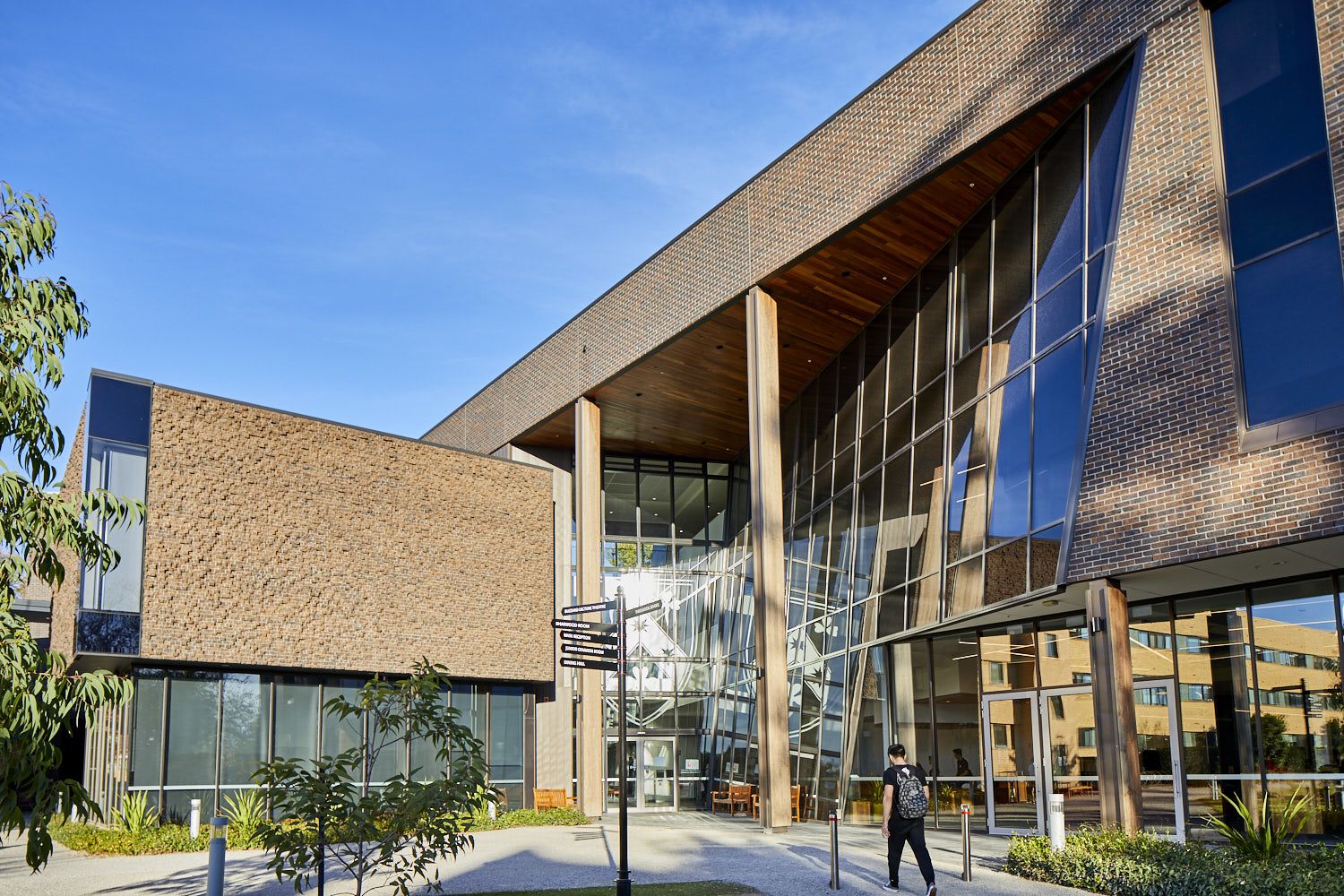
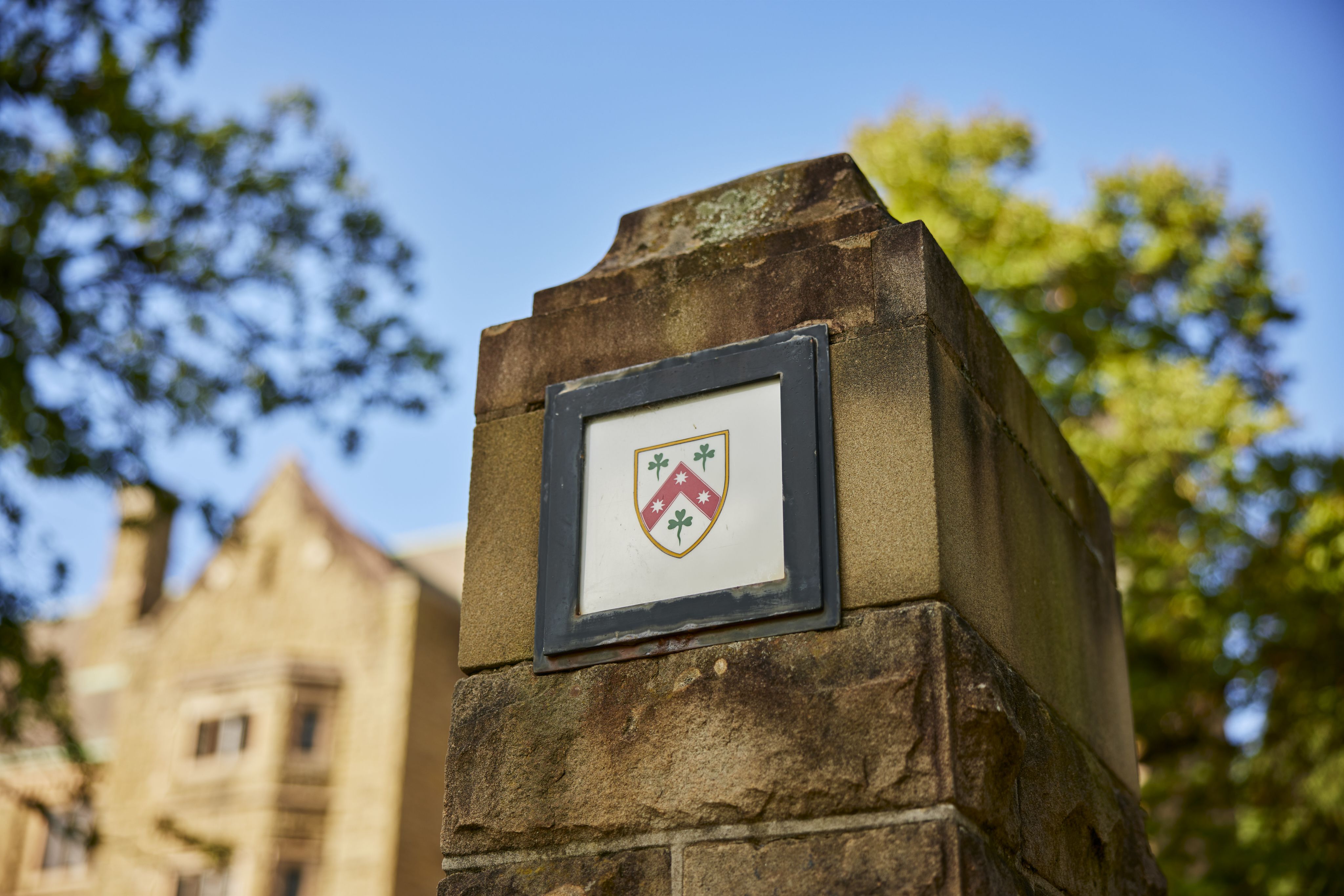
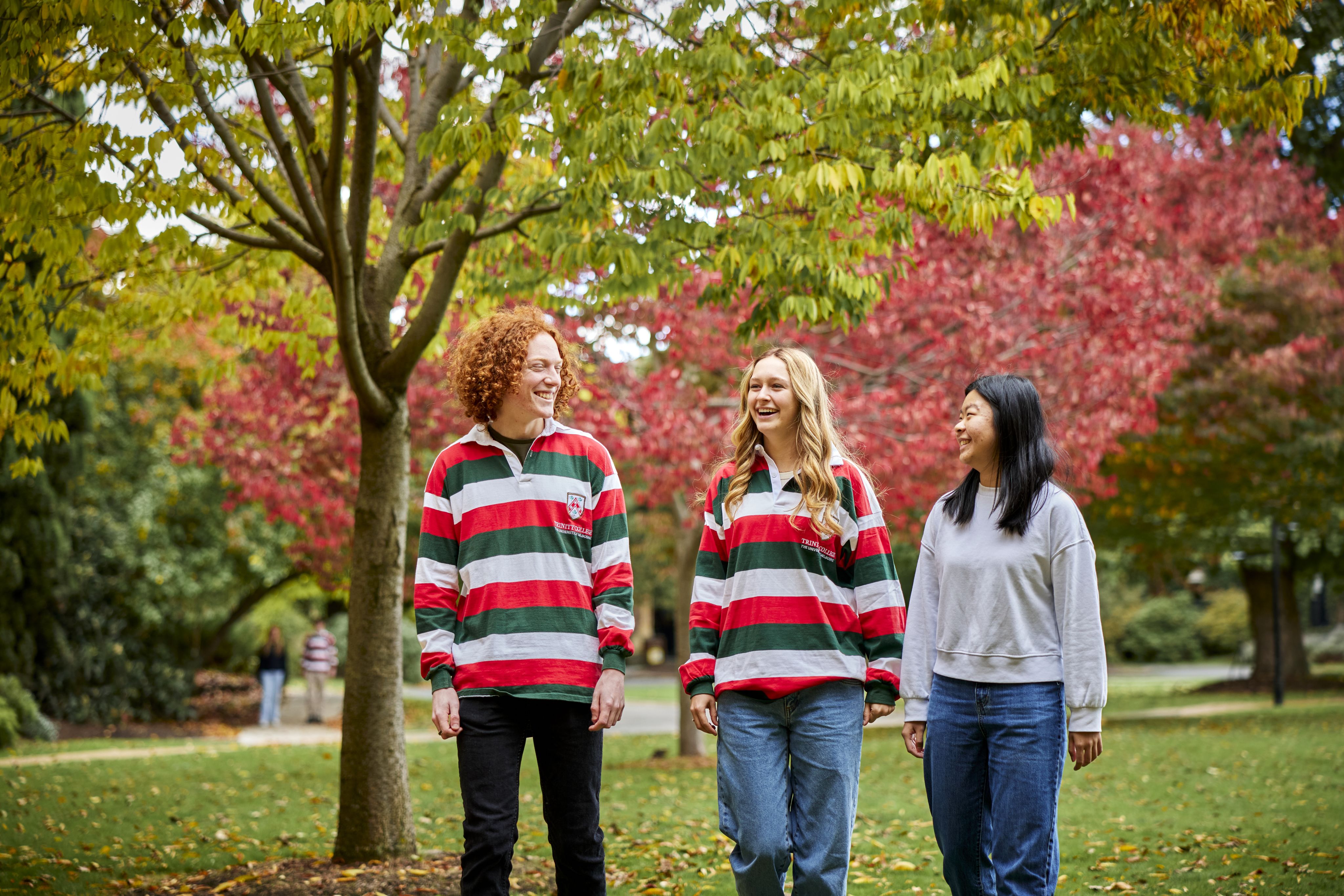
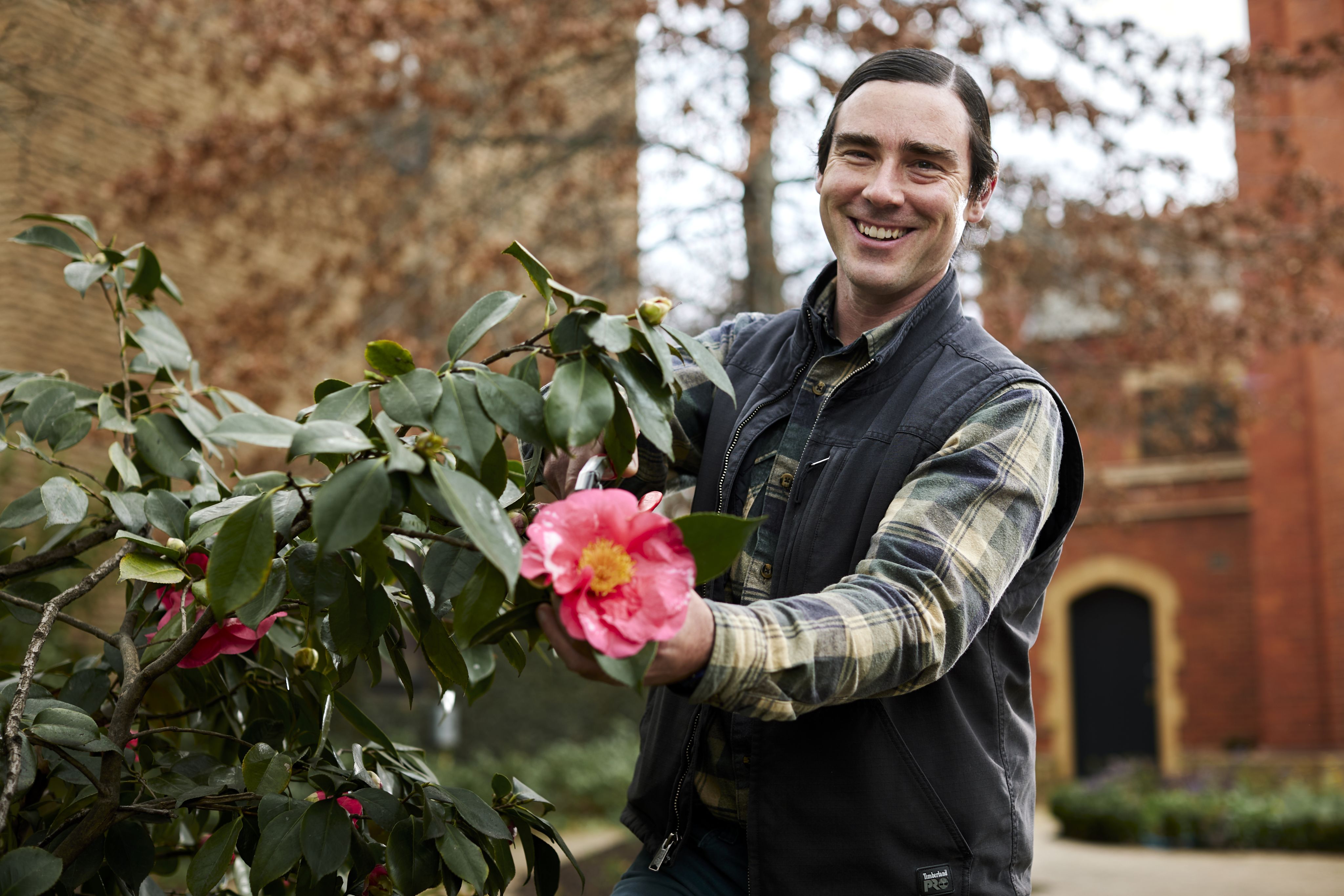
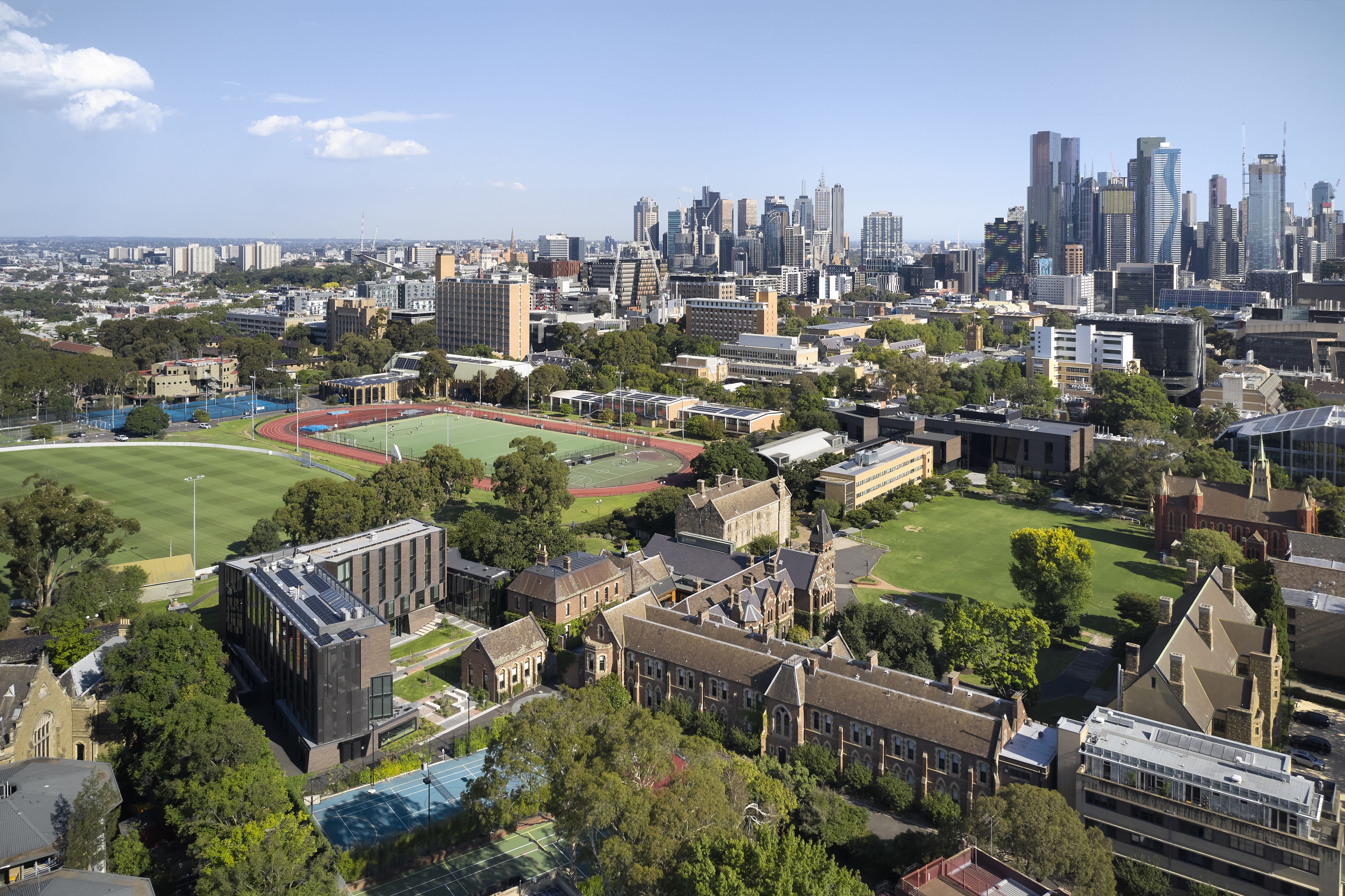
A MODERN COLLEGE
We will provide an experience that truly reflects our contemporary community through:
- Effectively connecting and engaging with all parts of our broader community
- Expanding our scholarship opportunities to ensure all three divisions of our College are accessible
- Pursuing environmental sustainability at the College through both what we do and in our educational programs
- Leveraging technology to make better decisions to support our business, programs and people.
AN ENDURING COLLEGE
We will ensure the College is here to educate and inspire for generations to come by:
- Developing a strategy and purpose for the Foundation and philanthropic initiatives
- Investigating opportunities to broaden our Pathways School offering
- Exploring opportunities to enhance the scale and scope of the Theological School
- Supporting strategies for chaplaincy and our Anglican identity
- Collaborating with the University of Melbourne and affiliated colleges to promote a vibrant, sustainable broader college community
- Providing an alumni experience that is wide reaching, engaging and inclusive.
A STUDENT-CENTRED COLLEGE
We will continue to be a highly valued educator and place for students through a unique, encouraging and well-rounded experience by:
- Ensuring our student facilities and resources embrace contemporary trends in learning and connecting
- Promoting student wellbeing across the College
- Exploring avenues for greater connection and collaboration within and across our student cohorts
- Invigorating our co-curricular activities, ensuring they are engaging and relevant
- Continuously developing and re-evaluating our pedagogies and curricula to provide best-practice education
- Providing opportunities for students to develop leadership skills.
A STAFF-FOCUSED COLLEGE
We will provide a fulfilling experience for staff across all teams through a supportive, inclusive, enjoyable and stimulating work environment by:
- Promoting staff connection through structured approaches to collaboration and transparency
- Evaluating, defining and promoting the Trinity College staff experience
- Supporting staff wellbeing through tailored, flexible programs
- Supporting staff through learning and development opportunities for mutually beneficial outcomes
- Providing the resources for our staff to operate efficiently and effectively.
AN OUTWARD-LOOKING COLLEGE
We will open up to our community to learn and connect through our diverse range of academic and cultural activities by:
- Providing our community with clear and effective avenues to use our services and programs
- Encouraging greater participation and engagement in our music offerings and finding ways to further showcase our programs
- Maturing our collection and promotion of arts and archives to support College strategies
- Broadening our public lectures and visiting scholar programs
- Maintaining positive and robust relationships with our key partners to deliver best-practice services
- Working with partners to promote and support Indigenous culture
- Enhancing engagement with leaders from our university partners and broader community through a senior common room.
A look back at Trinity's strategic milestones

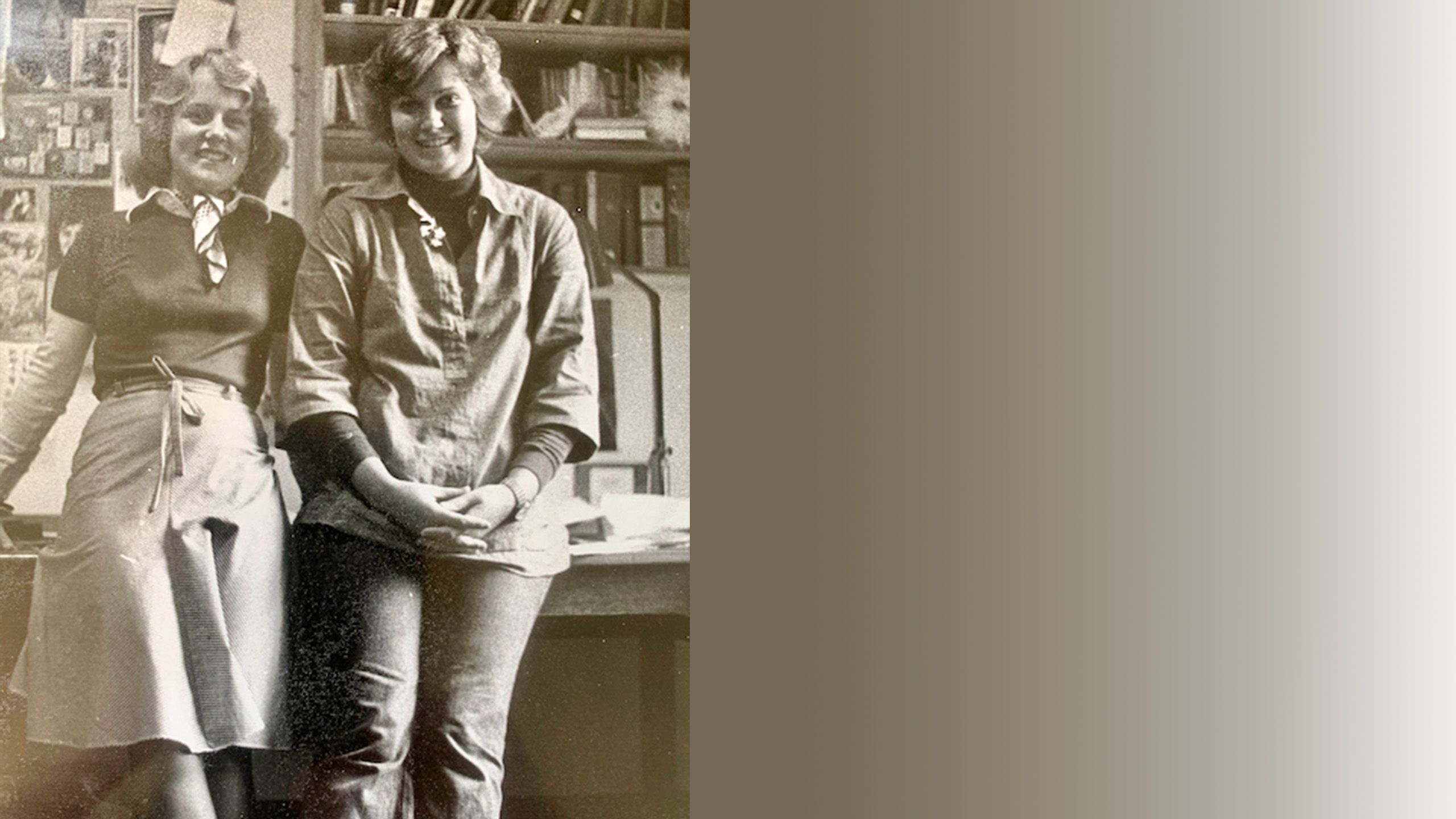
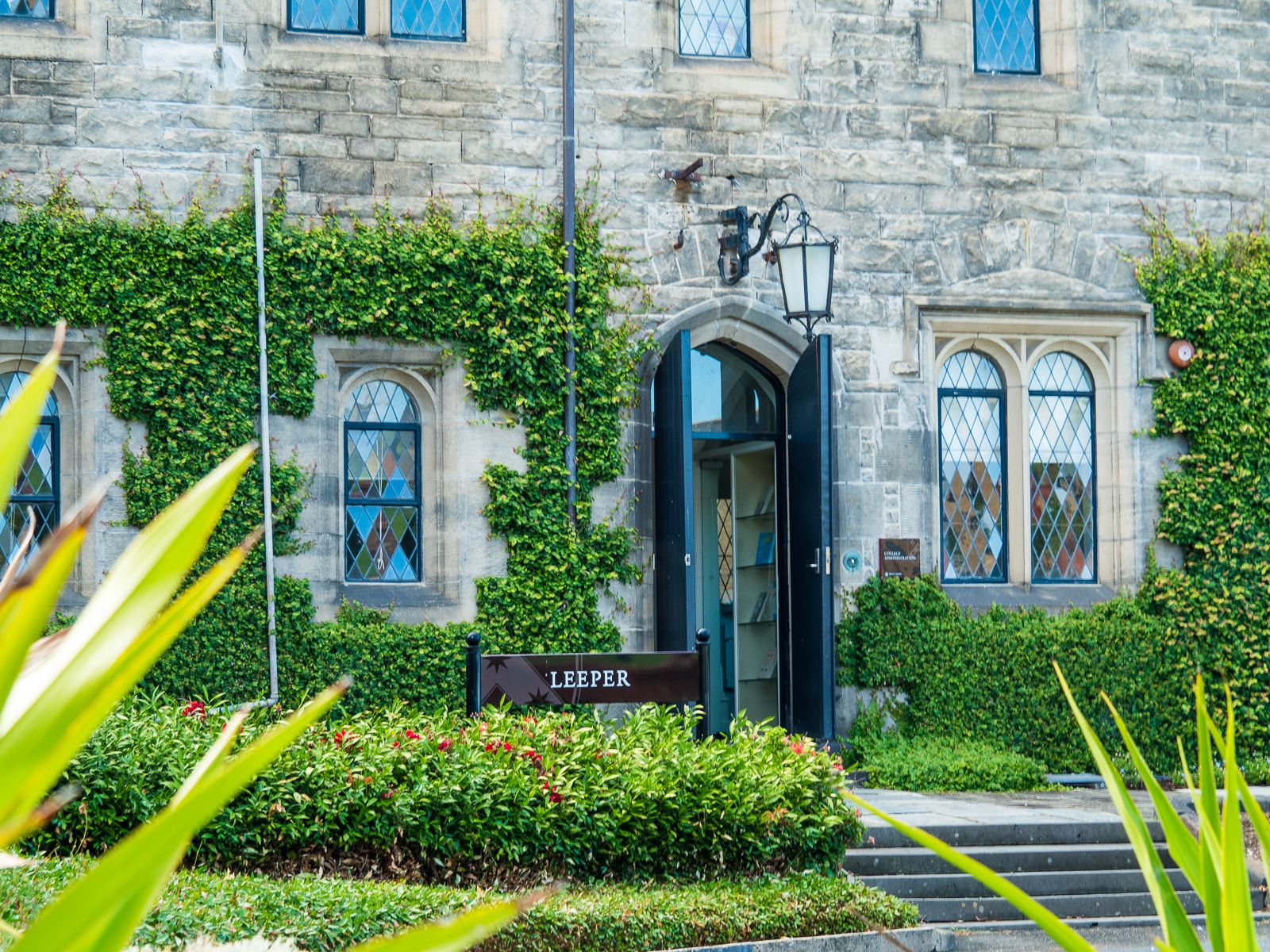

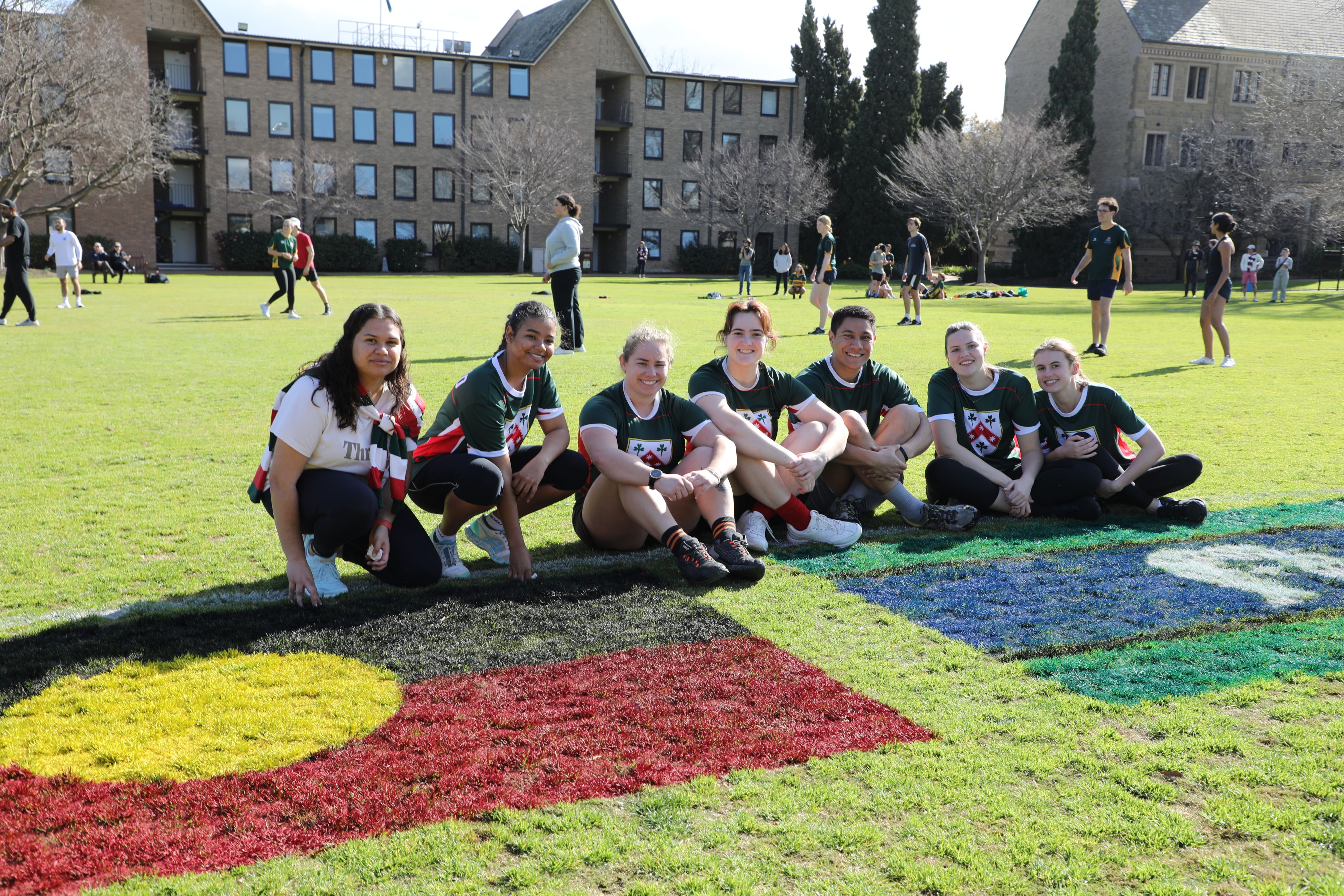
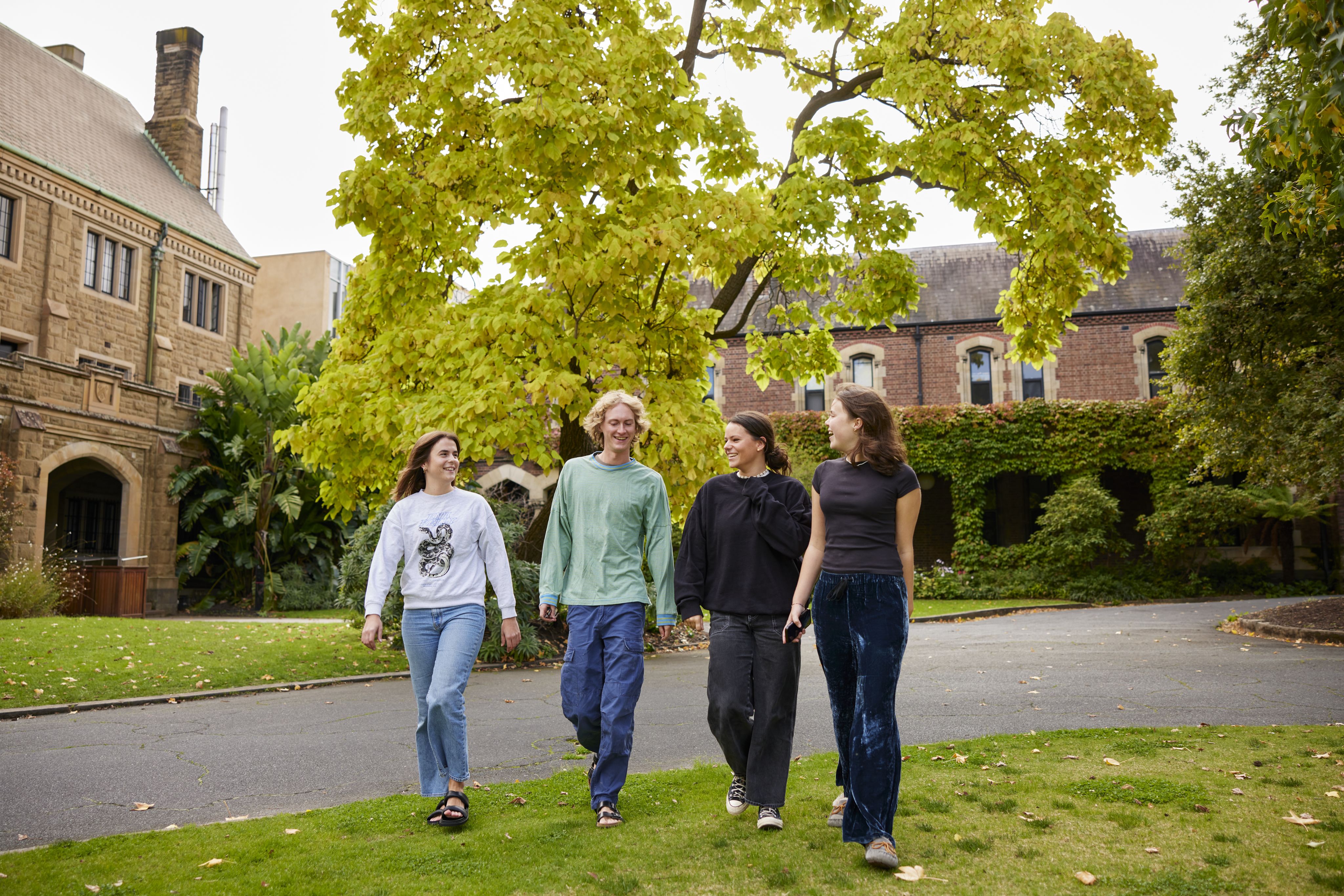
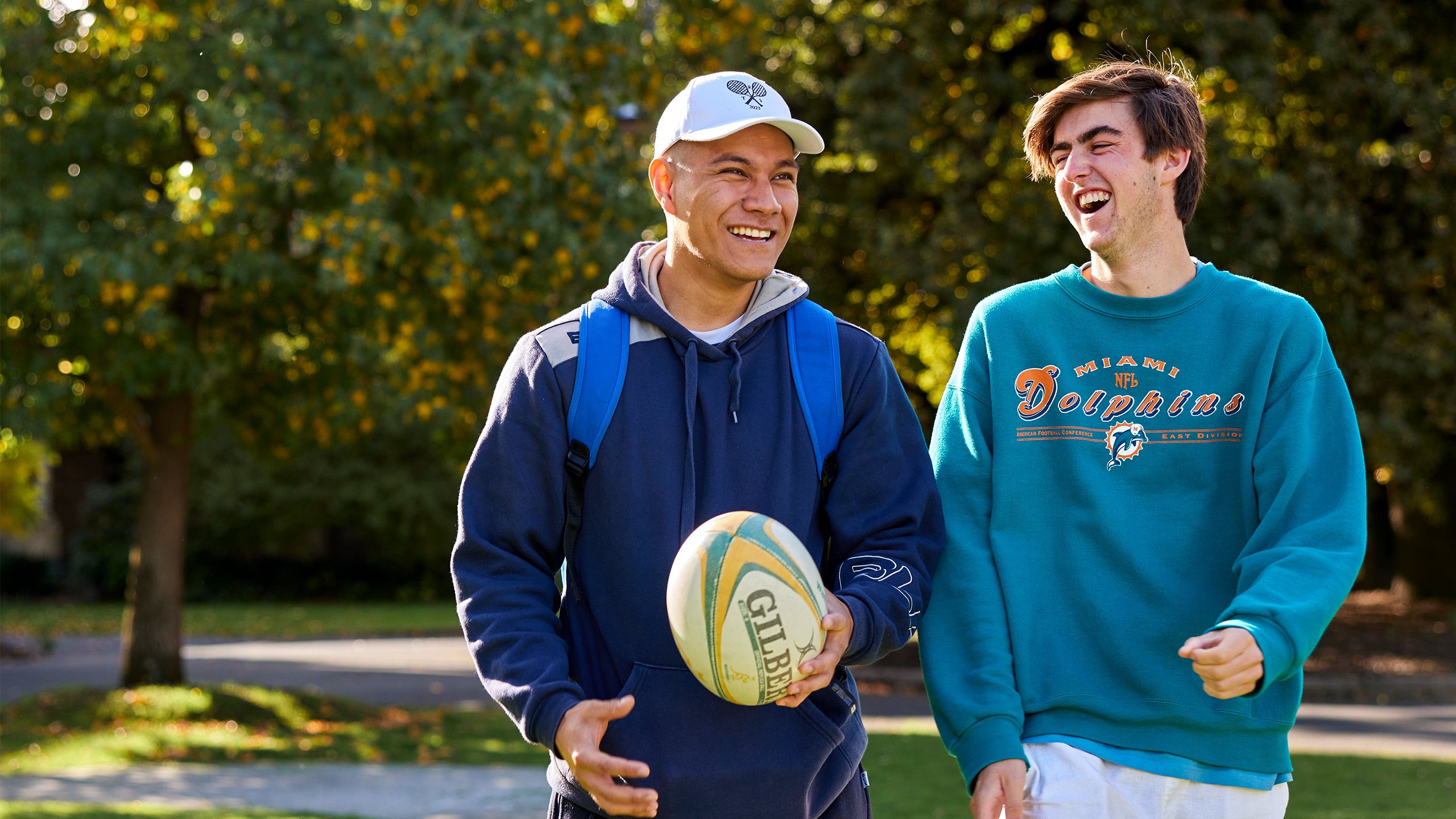
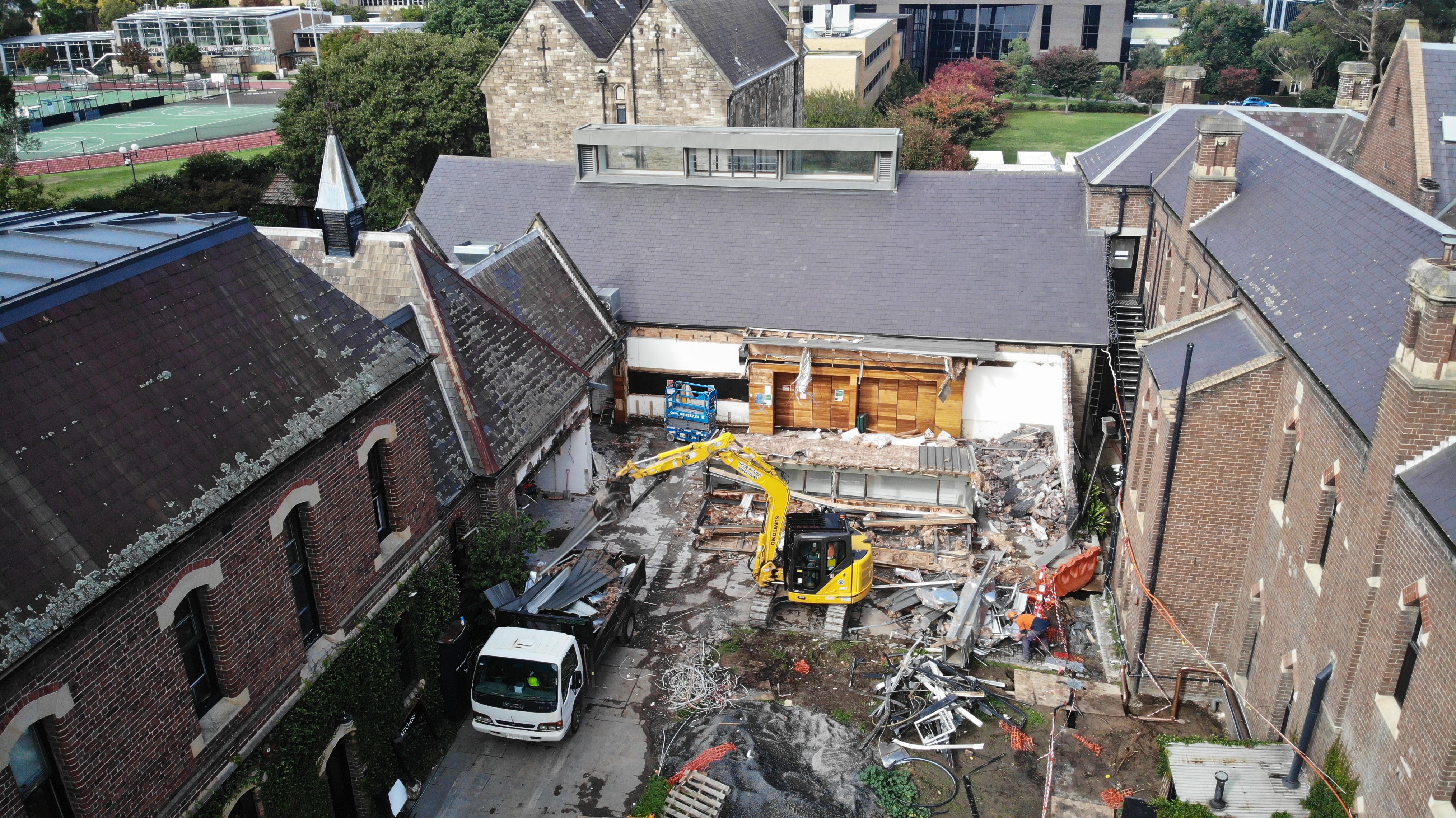
ADMITTING WOMEN AS RESIDENTS
Though Trinity had welcomed women as non-residents as early as 1883 (and opened the Trinity Women’s Hostel, now Janet Clarke Hall, three years later), the College opened its doors to women residents in 1974.
This was after the College Council unanimously agreed to permit women as residents at a meeting in 1972 and made a formal decision to admit women the following year.
Ten women joined Trinity in the inaugural year of co-residency.
CREATION OF THE TRINITY COLLEGE FOUNDATION
During Evan Burge’s wardenship (1974-1997), it was noted that Trinity had lived a financially ‘hand-to-mouth’ existence since its inception and lacked the funds for fundamental capital works projects. In 1981, a case was brought forward to the College Council to create a foundation to manage donations.
The proposal was ultimately passed to ensure the College ‘showed faith in its own future’.
Raising philanthropic funds via the Foundation has enabled new capital works to be carried out, building restoration and funding of scholarships and bursaries.
The Foundation has been spectacularly successful in developing a corpus that will ensure the long-term viability of the College.
ESTABLISHMENT OF FOUNDATION STUDIES AND THE PATHWAYS SCHOOL
In 1990, Trinity College offered its first Foundation Studies program under the Trinity Education Centre (later to be known as the Pathways School).
This program, which has run successfully for more than 34 years, provides a pathway for international students to access undergraduate study at the University of Melbourne.
The program is instrumental in developing the personal and academic attributes of young international students and thereby enables them to excel in their studies at the University of Melbourne or elsewhere.
In 2016, the $26 million Gateway Building – a dedicated space to run Foundation Studies classes – opened on Trinity’s Parkville campus.
Trinity’s 2017 strategic plan then highlighted the need for a two-campus model to manage burgeoning international student numbers, which prompted the securing of five floors of a new build at 611 Elizabeth Street. This site was relinquished because of the COVID-19 pandemic and, today, Trinity is focused on maintaining its two-campus model through its Parkville and Victoria Street campuses.
Since 1990, the Pathways School has been a major economic driver for the College and has successfully helped more than 30,000 international students access the University of Melbourne.
OFFERING PROGRAMS TO SUPPORT INDIGENOUS EDUCATION AND UNDERSTANDING
Trinity’s interest in engaging and developing meaningful connections with Aboriginal and Torres Strait Islander peoples is most obvious from the 1990s, when a number of student trips were organised to visit Aboriginal communities on country.
Over the following years, Trinity invited various guest speakers and artists in residence from Indigenous backgrounds to the College and began growing its collection of Indigenous artworks.
In 2001, the College’s first two Indigenous scholarships were awarded to Sana Nakata and Lily Brophy, with the Nakata Brophy short fiction and poetry competition introduced in 2014 to help Indigenous writers develop their writing skills and portfolio.
In 2009, Trinity played a lead role in establishing the Bachelor of Arts Extended program to provide a pathway for Aboriginal and Torres Strait Islander students to the University of Melbourne.
The College then instigated and hosted two Indigenous Higher Education Conferences (IHEC) in 2016 and 2018 as a forum to share information and knowledge about how to better support Indigenous students at a tertiary level.
Other initiatives have included inviting a student cohort to the Garma festival in the Northern Territory, holding exhibitions of Indigenous art in Trinity’s Burke Gallery and hosting a series of short programs for Indigenous students.
Importantly, the College has a commitment to enabling access to the Residential College for Aboriginal and Torres Strait Islander students and, moreover, in ensuring that there is a welcoming and culturally safe environment in the College that allows Indigenous students to embrace and celebrate their own culture.
REVIEWING OUR COLLEGE CULTURE
In 2018, Trinity commissioned an independent review by the Hon Marcia Neave AO, former judge of the Court of Appeal, Supreme Court of Victoria, and commissioner of the Victorian Royal Commission into Family Violence, to assess the culture of the Residential College. This was instigated following the Australian Human Rights Commission report on sexual assault at universities.
We implemented 30 of the 32 recommendations made in the final report, known as the ‘Neave review’ (with two recommendations assessed and considered unfitting in context).
Actions included making relevant policies more transparent, increasing student training programs to foster responsible student leadership, and encouraging and formalising the process of reporting and managing sexual misconduct.
Recognising that fostering a vibrant and supportive community is an ongoing effort, Trinity College has commissioned a second independent review in 2024.
This review will focus on the overall student experience and aim to strengthen students’ sense of belonging within the Residential College. The goal is to ensure the College remains robust and relevant to future undergraduate cohorts.
GROWING OUR SCHOLARSHIP PROGRAM
Trinity has long raised funds to provide student scholarships. However, the 2017 strategic plan outlined an explicit goal to grow the College’s scholarship program to become one of the largest of all Australian collegiate institutions.
While COVID-19 interrupted these plans, Trinity has a renewed interest in growing its scholarship offering, as reflected in its new strategy, with a particular focus on providing access to students from disadvantaged and regional and rural backgrounds.
In 2024, Trinity College offered $3.6 million in scholarships across its three divisions, and will increase this amount in future years.
Our hope is that no student offered a place in the College is unable to take it up because of their financial situation.
REDEVELOPING OUR DINING HALL
After opening in 1880, our Dining Hall underwent its first expansion in 1925 following an influx of students after World War I, then accommodated the post-WWII inflow with a further expansion over the summer of 1954–55.
A third expansion and renovation took place in 2011 and, at the end of 2022, we commenced the most significant building project the College is likely to see in many years, with a $22 million redevelopment of the Dining Hall and broader Kitchens Precinct.
This will accommodate increased student numbers following the opening of the Dorothy Jane Ryall residential building.
In 2024, Trinity College welcomed 1197 international students, 370 residential students and 128 theological students, and had 262 full and part-time staff, plus 187 casual staff members.
READ NEXT STORY >>> EDUCATION: WHAT LIES AHEAD
<<< BACK TO CONTENTS
